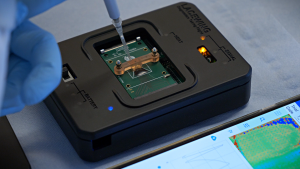
CAMO welcomes Will Bolton as he starts his AI4Health CDT-funded PhD studentship, supervised by Professor Alison Holmes and Dr. Pantelis Georgiou.
As part of the programme, Will’s PhD will combine artificial intelligence and machine learning to support healthcare diagnosis, monitoring and improvements in efficiency of care delivery.
The project aims to develop intelligent, personalised clinical decision support systems in order to optimise antibiotic therapy in obesity patients.
When an individual has two or more chronic healthcare conditions, this is known as multi-morbidity and this presents a significant challenge in healthcare. Obese patients are at higher risk of acquiring infections and being prescribed complex antibiotic treatments. They often fail to be dosed appropriately due to a lack of evidence to support decision making. This leads to a major health equality in management and outcomes of infections within obese cohorts, including risk of antimicrobial resistance. Will’s project will develop a novel decision support system, linking artificial intelligence with data from electronic health records to improve the diagnosis and management of infections in obese patients.



